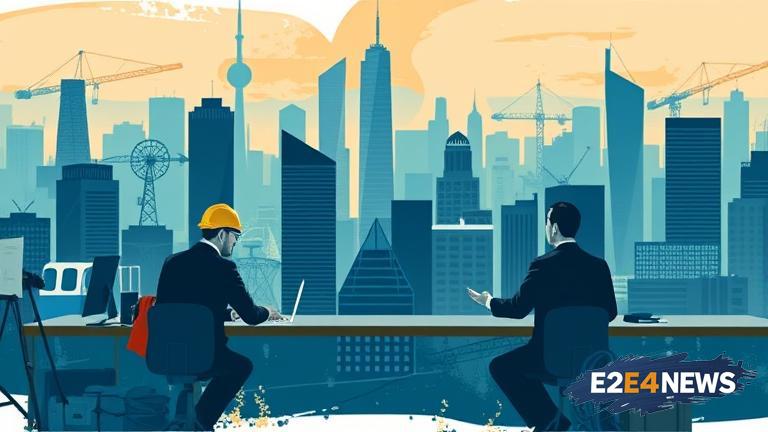The modern workplace is experiencing a profound transformation, driven by the intersection of technological innovation, demographic shifts, and changing employee needs. As the nature of work continues to evolve, it is essential to understand the dynamics of labour and the implications of these changes. The rise of automation and artificial intelligence is revolutionizing the way tasks are performed, enabling businesses to increase efficiency and productivity. However, this shift also poses significant challenges for workers, particularly those in sectors where tasks are more susceptible to automation. Furthermore, the demographics of the workforce are undergoing a significant shift, with younger generations bringing new expectations and values to the workplace. The importance of work-life balance, diversity, and inclusion are becoming increasingly prominent, and employers must adapt to these changing demands. In addition, the gig economy and non-traditional work arrangements are gaining traction, offering workers greater flexibility but also creating new challenges for job security and benefits. To navigate these changes, it is crucial for businesses, governments, and educational institutions to collaborate and invest in workforce development programs. These initiatives should focus on upskilling and reskilling workers, enabling them to thrive in an increasingly automated and digital landscape. Moreover, policymakers must prioritize the creation of jobs that are less susceptible to automation, such as those in the creative, healthcare, and education sectors. The role of education and training is also critical, as workers must be equipped with the skills necessary to succeed in a rapidly changing job market. Moreover, the concept of lifelong learning is becoming increasingly important, as workers must be willing to continuously update their skills to remain relevant. The impact of these changes is being felt across various industries, from manufacturing to services, and it is essential to develop strategies that mitigate the negative consequences of automation. For instance, implementing policies that promote worker retraining and upskilling can help to reduce the risk of job displacement. Additionally, fostering a culture of innovation and entrepreneurship can help to create new opportunities for workers and drive economic growth. The dynamics of labour are complex and multifaceted, and addressing these challenges will require a comprehensive and coordinated approach. By working together, we can create a future of work that is more equitable, sustainable, and prosperous for all. The need for adaptability and resilience has never been more pressing, and it is essential to prioritize the development of these skills in the workforce. As we move forward, it is crucial to recognize the importance of human skills, such as creativity, empathy, and problem-solving, which are essential for success in an automated and digital landscape. The future of work is uncertain, but by understanding the dynamics of labour and the drivers of change, we can work towards creating a more positive and productive outcome for all. Ultimately, the evolution of labour dynamics presents both opportunities and challenges, and it is up to us to navigate these changes and create a better future for workers and businesses alike. The importance of collaboration and cooperation cannot be overstated, as we work towards creating a more equitable and sustainable future of work. By prioritizing the needs of workers and investing in workforce development programs, we can create a more prosperous and resilient economy. The role of governments, educational institutions, and businesses is critical in this endeavour, and it is essential to work together to address the challenges and opportunities presented by the changing dynamics of labour. As we look to the future, it is clear that the dynamics of labour will continue to evolve, driven by technological innovation, demographic shifts, and changing employee expectations. By understanding these trends and working together, we can create a more positive and productive outcome for all.





